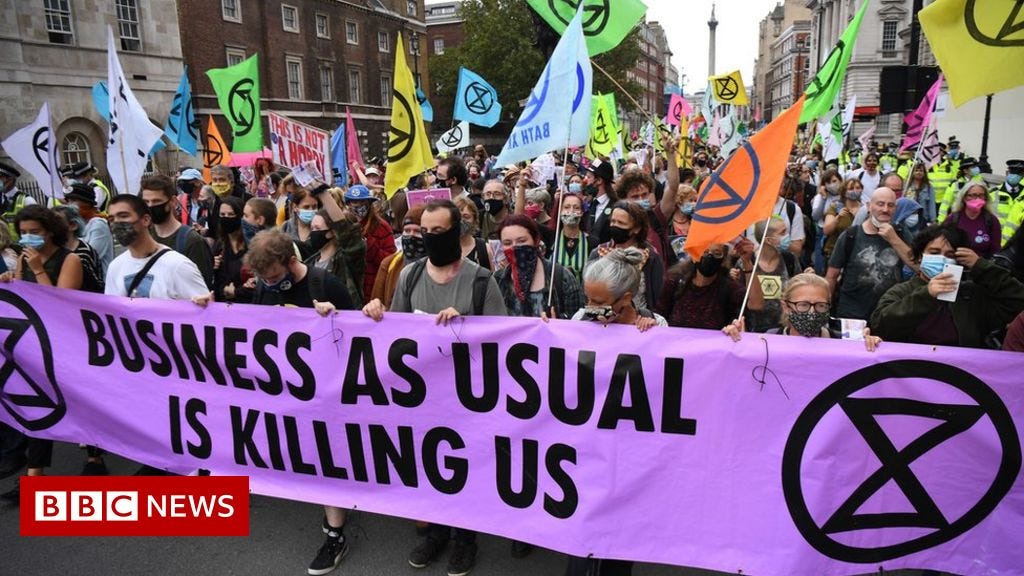Hello everyone:
Welcome to 2022. I want to start this week with the sad news of the death, on December 26th, of E.O. Wilson. He was 92, and had lived a life so extraordinary that it’s hard to summarize. A few highlights: He was a naturalist who became the world’s foremost authority on ants, a scientist who founded entire disciplines in biology and published hundreds of papers, a professor at Harvard for 46 years, a writer of thirty books and winner of two Pulitzers, and a staunch defender of life on Earth whose ideas and legacy may yet prove to be vital in turning the ship of civilization away from destruction and toward stewardship.
Wilson, often compared to Darwin, transformed our understanding of evolution, ecology, and human behavior. He popularized the terms “biophilia” and “biodiversity.” He created the Encyclopedia of Life, a site devoted to the task of describing every known species on the planet. Raised a Southern Baptist, he replaced that early faith with a lifelong wonder and enthusiasm for the beauty and complexity of the natural world, and wrote The Creation: An Appeal to Save Life on Earth, to convey to the faithful that Christians should embrace environmentalism. In his final years, among many other endeavors, he developed and promoted his Half-Earth Project, a proposal to explore, map, and protect enough biodiverse landscapes around the globe to sustain the bulk of Earth’s species against the stresses of the Anthropocene.
I could write essays on Wilson and the impact of his ideas for the next several months (I do plan on diving into the Half-Earth Project someday), but I’ll leave you here with a curated set of links to explore his world-changing life (don’t forget the links above too):
The New York Times obit, including a 10-minute previously-unreleased video interview with Wilson from 2008
A recent (2021) biography of Wilson by Pulitzer-winning science writer Richard Rhodes: Scientist – E.O. Wilson: A Life in Nature
His 2020 memoir Tales from the Ant World recounts several decades in the field
A short 2015 PBS video interview about Half-Earth
His 2012 book The Social Conquest of Earth and 2014 book The Meaning of Human Existence, taken together, are biological and philosophical explorations of how and why our species ended up where we are today, on the razor’s edge between world-creation and world-destruction in the Anthropocene
Letters to a Young Scientist (2013) is both memoir and motivational, written to instill a love of the natural world into young scientists in all fields
His 1999 book Consilience, in the spirit of the Enlightenment, seeks to push science back from its walled specializations toward a unified theory of knowledge
Now on to this week’s essay.
On the first anniversary of the January 6th insurrection at the U.S. Capitol, and with the prospect of a disturbing midterm election later this year, I think it makes sense to turn briefly toward humanity’s political sphere to ask a few questions about how the future of life on Earth will be defined by the turbulent machines of governance.
Just writing that sentence gives me the shivers, as I weigh the extraordinary importance and difficulty of the tasks ahead – prioritizing science, acting on its findings, devoting a substantial portion of civilization’s energy to regenerating nature, articulating the new priorities to the public, all while protecting climate and biodiversity from economic interests over the long term – against the discord and disconnect of short-term politics.
It’s not hard to imagine more gridlock, more deliberate gumming up of the legislative process by corporate profiteers and Russian bots, more obstruction by disinformed populists and angry nationalists, and more empty rhetoric from politicians who simply won’t hear or understand the call to action.
And that’s within nations structured for democratic discourse. Other nations run more ruthlessly by autocrats and dictators or barely run at all by kleptocrats profiting off of unrestrained resource extraction seem far less likely to top their to-do lists with full-scale action to restrain emissions and habitat loss. All of which leads me to my questions:
Are democracies more fit to cope with the Anthropocene? That is, are they inherently more likely to care for life on Earth and to deal with the climate crisis more efficiently and effectively?
Are authoritarian states any better equipped to take proper action in the Anthropocene?
Given the lost decades already chalked up by government inaction around the world, should we resist investing too much hope in top-down transformation?
How will democracy fare in the crucial decades ahead?
Let’s dig in. To stay grounded through this muddle, though, it might be best to look out a window from time to time to remind yourself of what’s at stake. Follow a bird. Imagine the underground communication between trees. Look for the signs of hope in winter’s hard beauty.
At its most basic, governance is about social coordination. It’s political and social control over a particular space for a particular period of time. It’s also about outreach from that space, whether to acquire resources, provide aid, or to engage with other governed spaces. When well-intentioned, the control in question is to maintain social systems, defend interests and norms, and provide for the governed.
Dealing with the Anthropocene requires an unprecedented level of social coordination. Well, actually, there is a precedent: the problem itself. Our species is in the midst of rewriting the future of life on Earth. We’re also in the midst of realizing that reality, but it’s unclear whether our systems of governance can muster the global coordination to respond to the same degree we have collectively overwhelmed the planet. Lots of beautiful work is being done – by people like you – but areas of resistance are ubiquitous: geopolitics, religious conflicts, nationalism, populism, scientific illiteracy, and complacency. The task isn’t merely to tame the climate we’ve inflamed; it’s to alter the nature of civilization. The climate crisis, like the intensifying loss of species, is a symptom of that larger problem.
And then there’s the nature of governance itself. The machine of democracy, for example, is designed to be slow, tidal, and messy. Parties and leaders are voted in and out, often by distracted or single-issue constituents, while elections are fraught with misinformation and legislation is informed by industry and built on compromise. Much of the electorate is ignored, or does not participate. (My view on democracy is admittedly American, I know, but these issues exist on a spectrum throughout the democratic world.) To put it mildly, these are problems, especially when what we need is speed and efficiency rooted in scientific rigor.
Here’s a wonkier way to say it, from The Conversation:
The space-time-community co-ordinates of liberal democracies are ill-suited to serving the long-term public good of environmental protection. This arises from not only short-term election cycles but also inequalities of political participation and bargaining power in the policymaking process, low levels of ecological literacy and, in cases of concentrated media ownership, a distorted public sphere… Together, these features make it easier for well-organised private interests to influence policy at the expense of diffuse and much less organised public interests.
The climate and biodiversity crises require long-term participation, at all levels, to find very-long-term solutions maintained over generations. A working democracy – or an ideal one, anyway – is built on participation, but not a unified or uniform participation. Those who receive the votes will govern, but will do so within the context of an opposition (both in and out of government) which is free to object to new policies and reverse or defund them upon taking the reins a few years later. As we all know – whatever our politics – this can be disheartening to the governed.
The combination of politics and and the Anthropocene make a classic example of what has been called a “wicked problem,” defined as messy, intractable, shapeshifting, and unsolvable in simple fashion.
But as International IDEA (the Institute for Democracy and Electoral Assistance) notes in a report titled “Democracy and the Challenge of Climate Change,” democratic governance has its benefits:
Apart from its intrinsic value to citizens, democracy also brings critical advantages in formulating effective climate policy, such as representative parliaments which can hold governments to account, widespread civic participation, independent media and a free flow of information, the active engagement by civil society organizations in policymaking and the capacity for institutional learning in the face of complex issues with long-term and global social and political implications.
These are critical advantages, of course. A government with checks and balances, also held in check by constituents and independent media, should be more responsive to a population clamoring for durable responses to these crises.
There is enormous cultural inertia to be overcome, however. The historical linkage between democracy and environmental destruction is actually at the heart of the Anthropocene. The world’s largest and leading democracies all owe their power and prestige to two centuries of unrestrained fossil fuel usage and irrational reliance on constant growth. The US, EU, and Japan emitted two-thirds of global historic greenhouse gas emissions, and the top clique of wealthy nations continue to consume far more of the world’s resources than is either ethical or sustainable.
Even so, democracies seem better suited to the task at hand. The tidal nature of parties swept in and out of power allows for large-scale change in a relatively short period, as long as the changes are maintained by all players. Even in the U.S., eventually there will be enough of a consensus among people desperate to limit the climate chaos that’s recently inflicted bursts of tornadoes on Kentucky, record-breaking “heat domes” on the Northwest, megadroughts and megafires on the West, and supercharged hurricanes on the Southeast and East.
Calling democracy better-suited isn’t much of a complement, though. It’s an analysis of the options. As Winston Churchill wryly noted,
Many forms of Government have been tried, and will be tried in this world of sin and woe. No one pretends that democracy is perfect or all-wise. Indeed it has been said that democracy is the worst form of Government except for all those other forms that have been tried from time to time.…
If citizens in democratic and authoritarian-led nations are equally concerned with deforestation, say, aren’t democratic governments more likely to take action? Certainly it’s democratic states that are making the most promises – what Greta Thunberg rightly called the “Blah, blah, blah” – in the global climate and biodiversity conferences. Also, nations that prioritize principles such as freedom of expression, healthcare, and gender equity, all of which are associated with stronger environmental records, tend to be democratic. Government reshaping of marketplaces and regulation of corporations, such as they are, occur more often and more durably in democracies than under regimes in which officials profit directly from industry.
But can authoritarian states, once motivated by their own self-interest (whether political or financial), effectively and equitably reshape their relationship with the natural world? Two answers come to mind: first, that it’s unlikely, given the apparently universal linkage between consolidated power and conservative anti-environmental agendas, and second, that China has become something of an exception.
Autocrats hoard wealth, reward cronies, abuse their people, limit liberties, often profit from ecocide, occasionally encourage genocide, and consistently create conflict in order to maintain power. It would be a bizarre exception if some dictator crushed his opposition in the name of environmental protection, creating a hellish society amid a flourishing, biodiverse landscape, but that’s not human nature in the Anthropocene, it seems. (Certain conservatives in the U.S. will claim that’s what green policies amount to, but I’m not convinced that I need to give that noise much space on this page.)
Certainly, Western political wonks believe that authoritarianism is not fit for coping with the climate crisis. Read this article in The Diplomat, or this one in Foreign Policy, or this one by Democracy Without Borders, and you hear the same refrain: democracy, for all its weaknesses, has the necessary mix of human dignity and societal momentum to get the job done. And that makes sense to me. The mix of top-down and bottom-up efforts is what civilizational change requires.
All of these articles, though, are written to counter the narrative coming out of China, where authorities are trumpeting the massive long-term efforts that are underway. With total control over its economy and social fabric, China dominates the world’s solar production and installation, has planted tens of billions of trees and shrubs to absorb CO2 and reverse desertification (their new five-year plan is to plant 14,000 square miles of trees per year), continues to build huge hydro projects, and plans to add 3,700 new miles and 3,600 new stations by 2025 to its mass transit network. Growth is still China’s mantra, however, as they’re still building lots of coal-burning power plants and encouraging families to have three children. And these solar and hydro projects come at a huge cost to biodiversity. The message here is that China is working the energy side of the climate equation without worrying about the environment. The Communist party values social stability and economic growth over everything else, and will flood all the valleys with hydro projects and cover all the deserts with solar panels if that’s what it takes.
And, moreover, we don’t see much environmental progress elsewhere in authoritarian states, other than the occasional creation of parks and preserves, or the development of hydro projects. An oil kleptocracy like Turkmenistan or an absolute monarchy like oil-rich Saudi Arabia feels little incentive, so far, to do the right thing. In fact, according to a paper at the Yale Review of International Studies that cited the Climate Change Performance Index 2021 (which ranks nations according to their climate promises and progress),
Among the 13 highest-scoring countries, 7 are classified as full democracies by The Economist Intelligence Unit’s Democracy Index. Not a single authoritarian country can be found among the high- and medium-scoring countries, and Morocco is the only non-democratic country with a high rating… In conclusion, people living in democracies are emitting high levels of greenhouse gases, but democracy is a factor that seems to lead climate policies in the right direction.
That paper is an analysis of the likely success or failure of what has been called “authoritarian environmentalism,” which imagines governments restricting democratic norms in order to take drastic actions on climate and extinctions. The paper deems authoritarian environmentalism to be – spoiler alert – a bad idea, given the likely backlash. But it’s worth pointing out that the longer governments wait to deal with climate and large-scale extinction, the more likely it is that decisions to cope with impacts will at least look like draconian crackdowns, especially if done quickly. I’m thinking here about nationalization of the energy sector, enforced protection of large natural areas, incentives for smaller families, and border walls to deal with millions of climate refugees, among others.
A 2020 article details how young Europeans, by a slight majority, told pollsters they think authoritarian states might be better suited to deal with the climate crisis they understand to be an existential threat. For what it’s worth, I see this less as a careful analysis by young voters and more of a desperate hope that some larger, effective force will save us, sort of a political equivalent to American academics putting their hopes in crackpot geoengineering schemes, like some India-sized sunshield in space. But at least the European wishful thinking is based in reality, not least the reality that their democratic nations haven’t been up to the task so far.
Environmental crises may not be political at their heart, but they are certainly political once their impacts are felt by the governed. This is especially true at the scale of the crises we face in the Anthropocene. It’s politics all the way to the horizon.
Yet we live in an era of democratic recession. That is, for a couple decades now the long 20th century rise of democracies around the globe has faltered, and slipped backward. Chinese and Russian authorities are the great cheerleaders for this process, but it is global. There’s no room to explore this here, but I note it because in the midst of the greatest challenge the world has ever faced, the enemy of effective action is less the form of government than the distractions that infect it. A good democracy is managed chaos that allows for dignity and purpose, whereas dictatorship obsessively attempts to stifle chaos. The balance of action tilts toward dignity and purpose, certainly, but what happens when the chaos increases?
As I’ve written before, citing what I called the “Ghastly report” from a group of the world’s top ecologists, all indications are that governance will become harder if the impacts from climate and biodiversity losses continue to accumulate. International IDEA notes in its report that
Climate change already has an impact on democratic governance through its effects on food security, conflicts, water scarcity, migration and natural disasters, among other consequences. Climate change also tests the ways in which democracies cooperate and collectively confront issues of relevance to humankind.
Insurrections like last year’s violent circus at the U.S. capitol, whether rooted in disinformed populist revolt or in genuine distress caused by climate chaos or economic upheaval, may well become more common. Look at the recent riots in Kazakhstan over gas prices (and authoritarian rule); look at the misguided revolts against pandemic restrictions (and remember that viral pandemics have long been predicted to occur alongside increases in population and development); look at the Extinction Rebellion climate protests in the streets of the UK and elsewhere. These and other upheavals will pose challenges for democracies and authoritarian states alike.
In this time of erosion in the world’s democracies, we have to believe that regenerating the Earth doesn’t require regenerating democracy first. If democracies continue to fare better in the civilizational shift, perhaps authoritarian regimes will once again falter as a planet’s worth of people clamor for the right actions at the right time.
With a little luck, all of these challenges will push governance in the right direction. And that’s the whole point here, right? Looking back to last week’s essay, it’s about agency. Governments and the U.N. have whole departments they call agencies; we and the organizations we form or connect with have our own agency. As do media, scientists, migrants, and children carrying signs.
Top-down systemic change is extraordinarily important, and can move mountains, but it’s as rare as totalitarian Edens. So, as Paul Hawken writes in Regeneration, we need “worldwide, collective, committed effort,” but “collectives do not emerge from the tops of institutions.” Top-down or bottom-up, collective and individual: it’s all necessary and welcome. Whether central banks and Wall Street firms and energy companies are pushed in the right direction by international cooperation, national policy, rogue board members, consumer choice, or violent protests little matters. If we can restructure the economic system, nations will follow, and life on Earth will begin the very long road to a new stability.
I’ll wrap up with a few thoughts about the U.S. situation. The Field Guide isn’t focused on politics, but as I noted, in the Anthropocene – an era defined by the environmental consequences of our social coordination – politics are braided into everything we need to do to reduce our harm and regenerate life.
There is a solid logic that worries about the 2022 midterms and the 2024 elections. If we revert wholly to Trump-style culture wars – self-obsessed, and dismissive of science, climate, and life on Earth more generally – and if we lose control of the ballot boxes to one political party’s authoritarian impulses, our leadership (such as it is) on climate issues will falter again, weakening an already insufficient global progress at a critical time, and thus endangering much of life. It’s a lot to hang on a couple elections, but a war is often defined by particular battles.
But there is also the logic that thrills at the groundswell that Hawken cites as far more important:
Just as we stand at the abyss of a climate emergency, we stand at another remarkable threshold. The rate of understanding and awakening about climate change is increasing exponentially, even skyrocketing. Climate change is becoming experiential rather than conceptual. As weather becomes ever more disruptive, and awareness and concern increase, the movement to reverse the climate crisis will likely become the largest movement in the history of humankind. It took decades to create this moment.
Politics matter. Politics in the U.S. matter especially, partly because we consume and emit so much and partly because of the massive outreach from our governed space into all regions of the planet. Ideally, our government will take on and maintain real leadership in these crises. But it may not, or at least not for some time. Eventually it will participate fully. There’s no choice.
Voters – that’s us – need to remember that there is this larger reality at stake here, with imperatives far more important than the usual issues that drive us to the polls. We need to remind others of it too, and get every environmentally-minded voter out to vote. But we also need to remember that our agency is far greater than checking off boxes on a Tuesday in November. We can act on every other day of the year as well.
As always, thanks for sticking with me. I’ll try to get my hands dirty with a less abstract topic next week.










Hi Jason: great essay, as usual.
IMHO politics in the US is broken (not an original thought, granted), and stalled.
In any event, I believe that politics is an integral of (i.e. follows) the economy, and what consumers choose to spend their resources on.
We consumers must change the way we live, and what we vote for with our dollars.
That, of course, is necessary but insufficient.
Additionally, we need to demand that our governments perceive those changes, and enact laws to support and sustain them.